afterLoad (456.22KB) (473μs)
afterInitialise (1.27MB) (33.57ms)
afterRoute (870.39KB) (23.18ms)
beforeRenderComponent com_tags (20.38KB) (261μs)
afterRenderComponent com_tags (2.29MB) (182ms)
afterDispatch (41.81KB) (5.39ms)
beforeRenderRawModule mod_articles_category (READ MORE...) (372.12KB) (29.09ms)
Before Access::preloadComponents (all components) (56.7KB) (6.05ms)
After Access::preloadComponents (all components) (103.05KB) (8.83ms)
Before Access::getAssetRules (id:8 name:com_content) (840B) (18μs)
After Access::getAssetRules (id:8 name:com_content) (7.05KB) (38μs)
afterRenderRawModule mod_articles_category (READ MORE...) (5.08KB) (314ms)
beforeRenderRawModule mod_tags_popular (Search) (4.81KB) (27μs)
afterRenderRawModule mod_tags_popular (Search) (7.04KB) (203ms)
beforeRenderRawModule mod_custom (Remember to download Heart Healthy Seniors) (816B) (34μs)
afterRenderRawModule mod_custom (Remember to download Heart Healthy Seniors) (4.86KB) (256μs)
beforeRenderRawModule mod_custom (Get additionel and more detailed knowledge ) (752B) (14μs)
afterRenderRawModule mod_custom (Get additionel and more detailed knowledge ) (1.67KB) (27μs)
beforeRenderRawModule mod_custom (BOOST YOUR IMMUNE DEFENSE) (608B) (10μs)
afterRenderRawModule mod_custom (BOOST YOUR IMMUNE DEFENSE) (928B) (21μs)
beforeRenderRawModule mod_custom (Are you taking supplements) (736B) (9μs)
afterRenderRawModule mod_custom (Are you taking supplements) (1.03KB) (19μs)
beforeRenderRawModule mod_custom (Antiaging) (720B) (8μs)
afterRenderRawModule mod_custom (Antiaging) (1.02KB) (18μs)
beforeRenderRawModule mod_custom (Exercise) (720B) (10μs)
afterRenderRawModule mod_custom (Exercise) (1.02KB) (18μs)
beforeRenderRawModule mod_custom (Check this before you buy a Q10 product) (752B) (9μs)
afterRenderRawModule mod_custom (Check this before you buy a Q10 product) (944B) (19μs)
beforeRenderRawModule mod_custom (Chronic fatigue tied Alan to his bed but Q10 capsules saved him:) (245.53KB) (10.29ms)
afterRenderRawModule mod_custom (Chronic fatigue tied Alan to his bed but Q10 capsules saved him:) (960B) (54μs)
beforeRenderModule mod_custom (Chronic fatigue tied Alan to his bed but Q10 capsules saved him:) (768B) (5μs)
afterRenderModule mod_custom (Chronic fatigue tied Alan to his bed but Q10 capsules saved him:) (1.3KB) (59μs)
beforeRenderRawModule mod_custom (Cholesterol-lowering without side effects:) (368B) (13μs)
afterRenderRawModule mod_custom (Cholesterol-lowering without side effects:) (2.19KB) (25μs)
beforeRenderModule mod_custom (Cholesterol-lowering without side effects:) (752B) (2μs)
afterRenderModule mod_custom (Cholesterol-lowering without side effects:) (1.28KB) (3.08ms)
beforeRenderModule mod_articles_category (READ MORE...) (21.32KB) (437μs)
afterRenderModule mod_articles_category (READ MORE...) (1.25KB) (44μs)
beforeRenderModule mod_tags_popular (Search) (5.17KB) (15μs)
afterRenderModule mod_tags_popular (Search) (1.27KB) (25μs)
beforeRenderModule mod_custom (Remember to download Heart Healthy Seniors) (1.17KB) (12μs)
afterRenderModule mod_custom (Remember to download Heart Healthy Seniors) (1.3KB) (22μs)
beforeRenderModule mod_custom (Get additionel and more detailed knowledge ) (368B) (9μs)
afterRenderModule mod_custom (Get additionel and more detailed knowledge ) (1.3KB) (21μs)
beforeRenderModule mod_custom (BOOST YOUR IMMUNE DEFENSE) (224B) (9μs)
afterRenderModule mod_custom (BOOST YOUR IMMUNE DEFENSE) (1.28KB) (20μs)
beforeRenderModule mod_custom (Are you taking supplements) (352B) (9μs)
afterRenderModule mod_custom (Are you taking supplements) (1.28KB) (20μs)
beforeRenderModule mod_custom (Antiaging) (336B) (9μs)
afterRenderModule mod_custom (Antiaging) (1.27KB) (20μs)
beforeRenderModule mod_custom (Exercise) (336B) (9μs)
afterRenderModule mod_custom (Exercise) (1.25KB) (20μs)
beforeRenderModule mod_custom (Check this before you buy a Q10 product) (352B) (8μs)
afterRenderModule mod_custom (Check this before you buy a Q10 product) (1.28KB) (19μs)
beforeRenderRawModule mod_menu (Main menu-US) (20.94KB) (3.7ms)
afterRenderRawModule mod_menu (Main menu-US) (152.66KB) (7.74ms)
beforeRenderModule mod_menu (Main menu-US) (720B) (6μs)
afterRenderModule mod_menu (Main menu-US) (4.36KB) (61μs)
beforeRenderRawModule mod_languages (Sprogskift) (3.44KB) (20μs)
afterRenderRawModule mod_languages (Sprogskift) (26.82KB) (3.99ms)
beforeRenderModule mod_languages (Sprogskift) (720B) (5μs)
afterRenderModule mod_languages (Sprogskift) (5.31KB) (22μs)
beforeRenderRawModule mod_finder () (6.34KB) (11μs)
afterRenderRawModule mod_finder () (214.16KB) (9.8ms)
beforeRenderModule mod_finder () (704B) (6μs)
afterRenderModule mod_finder () (5.79KB) (34μs)
beforeRenderRawModule mod_custom () (6.62KB) (142μs)
afterRenderRawModule mod_custom () (22.66KB) (10.11ms)
beforeRenderModule mod_custom () (704B) (6μs)
afterRenderModule mod_custom () (1.23KB) (50μs)
beforeRenderRawModule mod_menu (Main menu-US) (5.07KB) (106μs)
afterRenderRawModule mod_menu (Main menu-US) (5.8KB) (1.84ms)
beforeRenderModule mod_menu (Main menu-US) (720B) (6μs)
afterRenderModule mod_menu (Main menu-US) (1.25KB) (51μs)
beforeRenderRawModule mod_languages (Sprogskift Mobil) (912B) (19μs)
afterRenderRawModule mod_languages (Sprogskift Mobil) (3.89KB) (1.7ms)
beforeRenderModule mod_languages (Sprogskift Mobil) (720B) (5μs)
afterRenderModule mod_languages (Sprogskift Mobil) (1.27KB) (32μs)
beforeRenderRawModule mod_finder () (2.3KB) (11μs)
afterRenderRawModule mod_finder () (6.29KB) (9.96ms)
beforeRenderModule mod_finder () (704B) (6μs)
afterRenderModule mod_finder () (1.23KB) (49μs)
beforeRenderRawModule mod_custom () (8.66KB) (190μs)
afterRenderRawModule mod_custom () (904B) (166μs)
beforeRenderModule mod_custom () (704B) (3μs)
afterRenderModule mod_custom () (2.43KB) (26μs)
beforeRenderRawModule mod_custom () (688B) (85μs)
afterRenderRawModule mod_custom () (896B) (95μs)
beforeRenderModule mod_custom () (704B) (3μs)
afterRenderModule mod_custom () (2.71KB) (22μs)
afterRender (468.21KB) (47.24ms)
| 1 x afterRenderRawModule mod_articles_category (READ MORE...) (5.08KB) (34.19%) | 314.24ms |
| 1 x afterRenderRawModule mod_tags_popular (Search) (7.04KB) (22.1%) | 203.16ms |
| 1 x afterRenderComponent com_tags (2.29MB) (19.83%) | 182.31ms |
| 1 x afterRender (468.21KB) (5.14%) | 47.24ms |
| 1 x afterInitialise (1.27MB) (3.65%) | 33.57ms |
| 1 x beforeRenderRawModule mod_articles_category (READ MORE...) (372.12KB) (3.17%) | 29.09ms |
| 1 x afterRoute (870.39KB) (2.52%) | 23.18ms |
| 1 x beforeRenderRawModule mod_custom (Chronic fatigue tied Alan to his bed but Q10 capsules saved him:) (245.53KB) (1.12%) | 10.29ms |
| 1 x afterRenderRawModule mod_custom () (22.66KB) (1.1%) | 10.11ms |
| 1 x afterRenderRawModule mod_finder () (6.29KB) (1.08%) | 9.96ms |
| 1 x afterRenderRawModule mod_finder () (214.16KB) (1.07%) | 9.80ms |
| 1 x After Access::preloadComponents (all components) (103.05KB) (0.96%) | 8.83ms |
| 1 x afterRenderRawModule mod_menu (Main menu-US) (152.66KB) (0.84%) | 7.74ms |
| 1 x Before Access::preloadComponents (all components) (56.7KB) (0.66%) | 6.05ms |
| 1 x afterDispatch (41.81KB) (0.59%) | 5.39ms |
| 1 x afterRenderRawModule mod_languages (Sprogskift) (26.82KB) (0.43%) | 3.99ms |
| 1 x beforeRenderRawModule mod_menu (Main menu-US) (20.94KB) (0.4%) | 3.70ms |
| 1 x afterRenderModule mod_custom (Cholesterol-lowering without side effects:) (1.28KB) (0.33%) | 3.08ms |
| 1 x afterRenderRawModule mod_menu (Main menu-US) (5.8KB) (0.2%) | 1.84ms |
| 1 x afterRenderRawModule mod_languages (Sprogskift Mobil) (3.89KB) (0.19%) | 1.70ms |
| 1 x afterLoad (456.22KB) (0.05%) | 473μs |
| 1 x beforeRenderModule mod_articles_category (READ MORE...) (21.32KB) (0.05%) | 437μs |
| 1 x beforeRenderComponent com_tags (20.38KB) (0.03%) | 261μs |
| 1 x afterRenderRawModule mod_custom (Remember to download Heart Healthy Seniors) (4.86KB) (0.03%) | 256μs |
| 1 x beforeRenderRawModule mod_custom () (8.66KB) (0.02%) | 190μs |
| 1 x afterRenderRawModule mod_custom () (904B) (0.02%) | 166μs |
| 1 x beforeRenderRawModule mod_custom () (6.62KB) (0.02%) | 142μs |
| 1 x beforeRenderRawModule mod_menu (Main menu-US) (5.07KB) (0.01%) | 106μs |
| 1 x afterRenderRawModule mod_custom () (896B) (0.01%) | 95μs |
| 1 x beforeRenderRawModule mod_custom () (688B) (0.01%) | 85μs |
| 1 x afterRenderModule mod_menu (Main menu-US) (4.36KB) (0.01%) | 61μs |
| 1 x afterRenderModule mod_custom (Chronic fatigue tied Alan to his bed but Q10 capsules saved him:) (1.3KB) (0.01%) | 59μs |
| 1 x afterRenderRawModule mod_custom (Chronic fatigue tied Alan to his bed but Q10 capsules saved him:) (960B) (0.01%) | 54μs |
| 1 x afterRenderModule mod_menu (Main menu-US) (1.25KB) (0.01%) | 51μs |
| 1 x afterRenderModule mod_custom () (1.23KB) (0.01%) | 50μs |
| 1 x afterRenderModule mod_finder () (1.23KB) (0.01%) | 49μs |
| 1 x afterRenderModule mod_articles_category (READ MORE...) (1.25KB) (0%) | 44μs |
| 1 x After Access::getAssetRules (id:8 name:com_content) (7.05KB) (0%) | 38μs |
| 1 x afterRenderModule mod_finder () (5.79KB) (0%) | 34μs |
| 1 x beforeRenderRawModule mod_custom (Remember to download Heart Healthy Seniors) (816B) (0%) | 34μs |
| 1 x afterRenderModule mod_languages (Sprogskift Mobil) (1.27KB) (0%) | 32μs |
| 1 x beforeRenderRawModule mod_tags_popular (Search) (4.81KB) (0%) | 27μs |
| 1 x afterRenderRawModule mod_custom (Get additionel and more detailed knowledge ) (1.67KB) (0%) | 27μs |
| 1 x afterRenderModule mod_custom () (2.43KB) (0%) | 26μs |
| 1 x afterRenderRawModule mod_custom (Cholesterol-lowering without side effects:) (2.19KB) (0%) | 25μs |
| 1 x afterRenderModule mod_tags_popular (Search) (1.27KB) (0%) | 25μs |
| 1 x afterRenderModule mod_custom () (2.71KB) (0%) | 22μs |
| 1 x afterRenderModule mod_custom (Remember to download Heart Healthy Seniors) (1.3KB) (0%) | 22μs |
| 1 x afterRenderModule mod_languages (Sprogskift) (5.31KB) (0%) | 22μs |
| 1 x afterRenderRawModule mod_custom (BOOST YOUR IMMUNE DEFENSE) (928B) (0%) | 21μs |
| 1 x afterRenderModule mod_custom (Get additionel and more detailed knowledge ) (1.3KB) (0%) | 21μs |
| 1 x afterRenderModule mod_custom (Are you taking supplements) (1.28KB) (0%) | 20μs |
| 1 x afterRenderModule mod_custom (Antiaging) (1.27KB) (0%) | 20μs |
| 1 x afterRenderModule mod_custom (Exercise) (1.25KB) (0%) | 20μs |
| 1 x beforeRenderRawModule mod_languages (Sprogskift) (3.44KB) (0%) | 20μs |
| 1 x afterRenderModule mod_custom (BOOST YOUR IMMUNE DEFENSE) (1.28KB) (0%) | 20μs |
| 1 x afterRenderRawModule mod_custom (Are you taking supplements) (1.03KB) (0%) | 19μs |
| 1 x afterRenderRawModule mod_custom (Check this before you buy a Q10 product) (944B) (0%) | 19μs |
| 1 x afterRenderModule mod_custom (Check this before you buy a Q10 product) (1.28KB) (0%) | 19μs |
| 1 x beforeRenderRawModule mod_languages (Sprogskift Mobil) (912B) (0%) | 19μs |
| 1 x afterRenderRawModule mod_custom (Antiaging) (1.02KB) (0%) | 18μs |
| 1 x Before Access::getAssetRules (id:8 name:com_content) (840B) (0%) | 18μs |
| 1 x afterRenderRawModule mod_custom (Exercise) (1.02KB) (0%) | 18μs |
| 1 x beforeRenderModule mod_tags_popular (Search) (5.17KB) (0%) | 15μs |
| 1 x beforeRenderRawModule mod_custom (Get additionel and more detailed knowledge ) (752B) (0%) | 14μs |
| 1 x beforeRenderRawModule mod_custom (Cholesterol-lowering without side effects:) (368B) (0%) | 13μs |
| 1 x beforeRenderModule mod_custom (Remember to download Heart Healthy Seniors) (1.17KB) (0%) | 12μs |
| 2 x beforeRenderModule mod_menu (Main menu-US) (720B) (0%) | 12μs |
| 2 x beforeRenderModule mod_finder () (704B) (0%) | 12μs |
| 3 x beforeRenderModule mod_custom () (704B) (0%) | 12μs |
| 1 x beforeRenderRawModule mod_finder () (6.34KB) (0%) | 11μs |
| 1 x beforeRenderRawModule mod_finder () (2.3KB) (0%) | 11μs |
| 1 x beforeRenderRawModule mod_custom (BOOST YOUR IMMUNE DEFENSE) (608B) (0%) | 10μs |
| 1 x beforeRenderRawModule mod_custom (Exercise) (720B) (0%) | 10μs |
| 1 x beforeRenderRawModule mod_custom (Are you taking supplements) (736B) (0%) | 9μs |
| 1 x beforeRenderRawModule mod_custom (Check this before you buy a Q10 product) (752B) (0%) | 9μs |
| 1 x beforeRenderModule mod_custom (Get additionel and more detailed knowledge ) (368B) (0%) | 9μs |
| 1 x beforeRenderModule mod_custom (BOOST YOUR IMMUNE DEFENSE) (224B) (0%) | 9μs |
| 1 x beforeRenderModule mod_custom (Are you taking supplements) (352B) (0%) | 9μs |
| 1 x beforeRenderModule mod_custom (Antiaging) (336B) (0%) | 9μs |
| 1 x beforeRenderModule mod_custom (Exercise) (336B) (0%) | 9μs |
| 1 x beforeRenderModule mod_custom (Check this before you buy a Q10 product) (352B) (0%) | 8μs |
| 1 x beforeRenderRawModule mod_custom (Antiaging) (720B) (0%) | 8μs |
| 1 x beforeRenderModule mod_custom (Chronic fatigue tied Alan to his bed but Q10 capsules saved him:) (768B) (0%) | 5μs |
| 1 x beforeRenderModule mod_languages (Sprogskift) (720B) (0%) | 5μs |
| 1 x beforeRenderModule mod_languages (Sprogskift Mobil) (720B) (0%) | 5μs |
| 1 x beforeRenderModule mod_custom (Cholesterol-lowering without side effects:) (752B) (0%) | 2μs |
 The number of older people is constantly increasing, and more and more people suffer from Alzheimer’s disease and other types of dementia. Apparently, seniors who take a daily multivitamin can improve their memory and slow down their cognitive decline, according to a meta-analysis that is published in Journal of Clinical Nutrition. Older people generally have increased need for certain vitamins and minerals because of poor nutrient absorption in the digestive system, impaired enzyme functions, oxidative stress, and regular use of medical drugs that can interact with the nutrients. But how do different vitamins and minerals affect brain health?
The number of older people is constantly increasing, and more and more people suffer from Alzheimer’s disease and other types of dementia. Apparently, seniors who take a daily multivitamin can improve their memory and slow down their cognitive decline, according to a meta-analysis that is published in Journal of Clinical Nutrition. Older people generally have increased need for certain vitamins and minerals because of poor nutrient absorption in the digestive system, impaired enzyme functions, oxidative stress, and regular use of medical drugs that can interact with the nutrients. But how do different vitamins and minerals affect brain health?







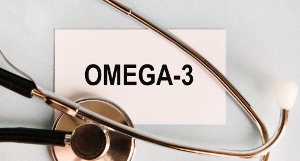
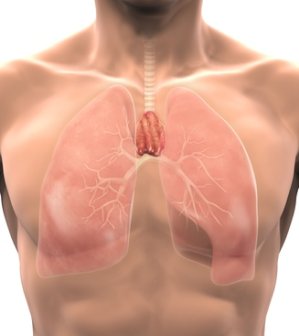 Even the earliest ageing processes are known to damage central parts of our immune system, leaving us more exposed to infection, inflammation, and cancer. However, new studies demonstrate that antioxidants such as vitamin C and selenium may repair the damage.
Even the earliest ageing processes are known to damage central parts of our immune system, leaving us more exposed to infection, inflammation, and cancer. However, new studies demonstrate that antioxidants such as vitamin C and selenium may repair the damage.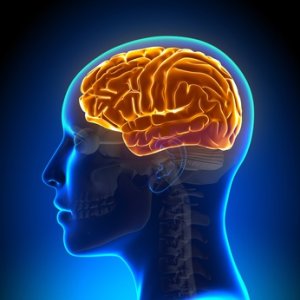 According to a new study from Melbourne's Swinburne University, supplementing with B vitamins gives you more vitality and surplus in mentally challenging situations, thereby reducing the subjective feeling of stress. The study is the first to use a special technique to reveal the circulatory flow through the brain.
According to a new study from Melbourne's Swinburne University, supplementing with B vitamins gives you more vitality and surplus in mentally challenging situations, thereby reducing the subjective feeling of stress. The study is the first to use a special technique to reveal the circulatory flow through the brain. We all know the importance of eating a healthy diet, exercising, getting sufficient sleep, and sunbathing with caution. Still, life is not always that simple, and even if we stick with the official guidelines for healthy living, it can often be challenging to get adequate amounts of the essential nutrients. Nonetheless, supplements are useful as compensation for these shortcomings. In fact, the use of such products can be compared with plant fertilizers that make plants look healthy, flourish and thrive
We all know the importance of eating a healthy diet, exercising, getting sufficient sleep, and sunbathing with caution. Still, life is not always that simple, and even if we stick with the official guidelines for healthy living, it can often be challenging to get adequate amounts of the essential nutrients. Nonetheless, supplements are useful as compensation for these shortcomings. In fact, the use of such products can be compared with plant fertilizers that make plants look healthy, flourish and thrive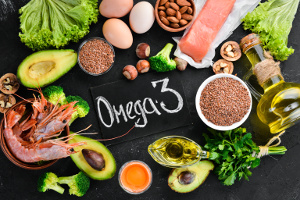 Apparently so. Omega-3 is a class of essential fatty acids with a host of different functions in the body. We primarily get omega-3 from oily fish but it is also found in certain other foods. Our intake of omega-3 has been reduced substantially as a result of altered diets and the use of unnatural animal feed. It appears that having more omega-3 in the blood can help us live longer. This was shown in a study that is published in American Journal of Clinical Nutrition. The question is how do we get enough omega-3?
Apparently so. Omega-3 is a class of essential fatty acids with a host of different functions in the body. We primarily get omega-3 from oily fish but it is also found in certain other foods. Our intake of omega-3 has been reduced substantially as a result of altered diets and the use of unnatural animal feed. It appears that having more omega-3 in the blood can help us live longer. This was shown in a study that is published in American Journal of Clinical Nutrition. The question is how do we get enough omega-3? Apparently so. According to a new study, vitamin B3 (niacin) is a powerful antioxidant that, by means of enzyme processes, protects the body against aging and diseases caused by oxidative stress.
Apparently so. According to a new study, vitamin B3 (niacin) is a powerful antioxidant that, by means of enzyme processes, protects the body against aging and diseases caused by oxidative stress. It is only natural to expect a nutritional supplement to be absorbed and deliver an effect. However, for this to happen, you must look for products with documentation. Countless multivitamin products and supplements with Q10, selenium, chromium, magnesium, and iron have very poor quality and are not properly absorbed. Our ageing process alone impairs the uptake of vitamins and minerals, and the same is the case if we lack essential fats, have too high calcium levels, or use antacids and other types of medicine – so this also needs to be taken into account.
It is only natural to expect a nutritional supplement to be absorbed and deliver an effect. However, for this to happen, you must look for products with documentation. Countless multivitamin products and supplements with Q10, selenium, chromium, magnesium, and iron have very poor quality and are not properly absorbed. Our ageing process alone impairs the uptake of vitamins and minerals, and the same is the case if we lack essential fats, have too high calcium levels, or use antacids and other types of medicine – so this also needs to be taken into account.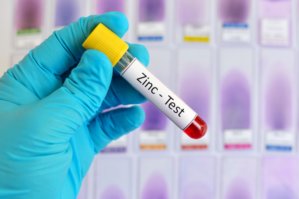
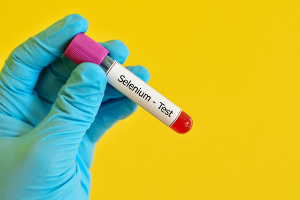
 It is commonly known that vitamin A is good for your vision, but most people are unaware that we also need specific nutrients in order for our hearing to function optimally. In this connection, age-related hearing loss is not necessarily linked to mechanical dysfunctions of the ear but rather to how the brain processes the sound information.
It is commonly known that vitamin A is good for your vision, but most people are unaware that we also need specific nutrients in order for our hearing to function optimally. In this connection, age-related hearing loss is not necessarily linked to mechanical dysfunctions of the ear but rather to how the brain processes the sound information. The number of seniors in the world is growing steadily which means a surge in problems like cardiovascular disease, cancer, respiratory illnesses, overweight, diabetes, rheumatism, dementia, and Alzheimer’s disease. These diseases that have a widespread impact on human lives and are a burden to society are often linked to chronic inflammation. A group of scientists therefore decided to look closer at studies that have found a positive effect of the omega-3 fatty acids EPA and DHA on cognitive functioning, maintenance of muscle mass, and prevention and treatment of a host of serious diseases that are related to ageing. It is vital to start supplementing early and to take the right doses, according to the new review article published in Nutrients.
The number of seniors in the world is growing steadily which means a surge in problems like cardiovascular disease, cancer, respiratory illnesses, overweight, diabetes, rheumatism, dementia, and Alzheimer’s disease. These diseases that have a widespread impact on human lives and are a burden to society are often linked to chronic inflammation. A group of scientists therefore decided to look closer at studies that have found a positive effect of the omega-3 fatty acids EPA and DHA on cognitive functioning, maintenance of muscle mass, and prevention and treatment of a host of serious diseases that are related to ageing. It is vital to start supplementing early and to take the right doses, according to the new review article published in Nutrients. Women who eat a healthy diet may prevent or delay their physical deterioration. But what type of diet has the best effect? And how can specific nutrients, which are difficult to get from the diet, improve the overall effect?
Women who eat a healthy diet may prevent or delay their physical deterioration. But what type of diet has the best effect? And how can specific nutrients, which are difficult to get from the diet, improve the overall effect?
 Selenium supports a host of different metabolic processes and serves as an antioxidant that protects our cells. According to recent studies, selenium also has anti-ageing properties that protect us against cardiovascular disease, cancer, dementia, and other age-related diseases. According to a review article published in Medical News Today, selenium also helps against impaired immunity and counteracts chronic inflammation, which is typically seen in connection with ageing processes. A Swedish study of healthy seniors has even showed that supplementation with selenium and Q10 has a positive effect on heart function, quality of life, and life expectancy.
Selenium supports a host of different metabolic processes and serves as an antioxidant that protects our cells. According to recent studies, selenium also has anti-ageing properties that protect us against cardiovascular disease, cancer, dementia, and other age-related diseases. According to a review article published in Medical News Today, selenium also helps against impaired immunity and counteracts chronic inflammation, which is typically seen in connection with ageing processes. A Swedish study of healthy seniors has even showed that supplementation with selenium and Q10 has a positive effect on heart function, quality of life, and life expectancy. It is commonly known that degenerative diseases such as cardiovascular disease, diabetes, kidney ailments, and liver diseases are often linked to poor quality of life and shorter lifespan. Supplementing with Q10, possibly in combination with selenium yeast, may have a positive influence on the mentioned conditions and lower your risk of premature death by as much as 50 percent or more. In fact, Q10 can help delay the ageing processes by protecting the heart, cardiovascular system, and cells, according to a large review article published online by NCBI (National Center for Biotechnology Information). As mentioned in this article, it is essential to use supplements that are pharmaceutical-grade in order to ensure proper absorption in blood and tissue.
It is commonly known that degenerative diseases such as cardiovascular disease, diabetes, kidney ailments, and liver diseases are often linked to poor quality of life and shorter lifespan. Supplementing with Q10, possibly in combination with selenium yeast, may have a positive influence on the mentioned conditions and lower your risk of premature death by as much as 50 percent or more. In fact, Q10 can help delay the ageing processes by protecting the heart, cardiovascular system, and cells, according to a large review article published online by NCBI (National Center for Biotechnology Information). As mentioned in this article, it is essential to use supplements that are pharmaceutical-grade in order to ensure proper absorption in blood and tissue.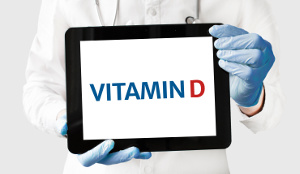 It is both healthy and life-extending to get plenty of summer sun, which is our main source of vitamin D. Just make sure not to get a sunburn. According to a large population study from University of South Australia, too little vitamin D in the blood is linked to early death, especially because of an increased risk of cardiovascular disease, cancer, and respiratory diseases. This is very relevant because, apart from the lack of sunshine during winter, things like sun awareness campaigns, indoor living, being overweight, and having dark skin can contribute to the widespread lack of vitamin D. The official recommendations for vitamin D intake are also comparatively conservative. Therefore, people should strive to optimize their levels of the nutrient, as vitamin D is involved in regulating countless gene activities and other functions in the body.
It is both healthy and life-extending to get plenty of summer sun, which is our main source of vitamin D. Just make sure not to get a sunburn. According to a large population study from University of South Australia, too little vitamin D in the blood is linked to early death, especially because of an increased risk of cardiovascular disease, cancer, and respiratory diseases. This is very relevant because, apart from the lack of sunshine during winter, things like sun awareness campaigns, indoor living, being overweight, and having dark skin can contribute to the widespread lack of vitamin D. The official recommendations for vitamin D intake are also comparatively conservative. Therefore, people should strive to optimize their levels of the nutrient, as vitamin D is involved in regulating countless gene activities and other functions in the body. More than 25 percent of people older than 65 years have low levels of vitamin D in their blood. Deficiencies in vitamin B12, folic acid, and iron are also common. This is the conclusion of a large study that was conducted by scientists from Helmholtz Zentrum in Munich, Germany. The widespread lack of vitamins and minerals among older people is critical, especially because this population group is increasing. The lack of essential nutrients affects the calcium uptake, immune defense, and nervous system among other things, leaving older people increasingly vulnerable to osteoporosis, influenza, dementia, and a host of other diseases that impair quality of life and burden the entire public health sector.
More than 25 percent of people older than 65 years have low levels of vitamin D in their blood. Deficiencies in vitamin B12, folic acid, and iron are also common. This is the conclusion of a large study that was conducted by scientists from Helmholtz Zentrum in Munich, Germany. The widespread lack of vitamins and minerals among older people is critical, especially because this population group is increasing. The lack of essential nutrients affects the calcium uptake, immune defense, and nervous system among other things, leaving older people increasingly vulnerable to osteoporosis, influenza, dementia, and a host of other diseases that impair quality of life and burden the entire public health sector. Melatonin is primarily known for its role as a sleep hormone. Nonetheless, studies reveal that melatonin has a variety of anti-cancer properties, and supplementing with the substance may increase the effect of chemotherapy while counteracting its side effects.
Melatonin is primarily known for its role as a sleep hormone. Nonetheless, studies reveal that melatonin has a variety of anti-cancer properties, and supplementing with the substance may increase the effect of chemotherapy while counteracting its side effects.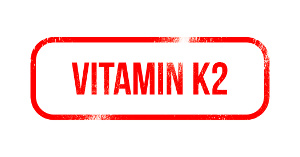 Your birth attest reveals your actual age but your biological age gives a more accurate picture of your health and life expectancy. Our biological age and cardiovascular health are closely connected, with atherosclerosis and arterial stiffness representing a progressive process that eventually leads to the majority of deaths. Nonetheless, you can do a lot yourself by making sure to get sufficient amounts the nutrients that are most vital for good cardiovascular health. In this article, we will look closer at some current studies of vitamin K2, Q10, selenium, and omega-3, all of which are essential nutrients that prevent, each in their own way, atherosclerosis, arterial stiffness, and premature death as a result of having high heart age.
Your birth attest reveals your actual age but your biological age gives a more accurate picture of your health and life expectancy. Our biological age and cardiovascular health are closely connected, with atherosclerosis and arterial stiffness representing a progressive process that eventually leads to the majority of deaths. Nonetheless, you can do a lot yourself by making sure to get sufficient amounts the nutrients that are most vital for good cardiovascular health. In this article, we will look closer at some current studies of vitamin K2, Q10, selenium, and omega-3, all of which are essential nutrients that prevent, each in their own way, atherosclerosis, arterial stiffness, and premature death as a result of having high heart age. New Year’s resolutions are often related to healthier living with better dietary choices, fewer stimulants, and more exercise. We want to stay as young and vital as possible with lots of energy. However, life is not always that simple, and nature often needs a helping hand. The following anti-ageing tips – including the essential beauty sleep – are based on a summary of articles that have all been published previously on this site.
New Year’s resolutions are often related to healthier living with better dietary choices, fewer stimulants, and more exercise. We want to stay as young and vital as possible with lots of energy. However, life is not always that simple, and nature often needs a helping hand. The following anti-ageing tips – including the essential beauty sleep – are based on a summary of articles that have all been published previously on this site.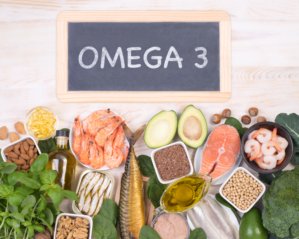
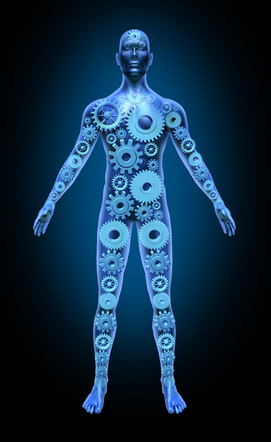 The cellular energy turnover takes place inside some small powerhouses called mitochondria. The condition of these tiny structures is determining for our energy levels and health. That is why it is vital that the mitochondria are adequately supplied with all the necessary nutrients. Q10 and magnesium play a particularly important role.
The cellular energy turnover takes place inside some small powerhouses called mitochondria. The condition of these tiny structures is determining for our energy levels and health. That is why it is vital that the mitochondria are adequately supplied with all the necessary nutrients. Q10 and magnesium play a particularly important role.
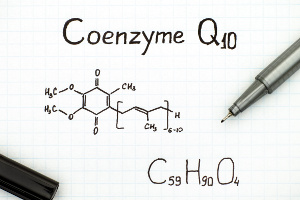 A previous study has demonstrated that daily supplementation with coenzyme Q10 and selenium increases heart muscle strength in seniors and reduces their cardiovascular mortality by over 50 percent. Now, a team of Swedish and Norwegian scientists has found that these two nutrients are also able to slow down the age-related shortening of cellular telomeres, which are attached to the ends of all DNA strands. You can compare telomeres to the small aglets that prevent our shoelaces from fraying and tangling. Like aglets, telomeres protect the DNA strands, but they are exposed to attrition and eventually wear out. The more worn our telomeres become, the more exposed the cellular DNA becomes, until it reaches the point where the cell finally perishes. Q10 and selenium appear to preserve telomere length, thereby keeping us in good health for longer time.
A previous study has demonstrated that daily supplementation with coenzyme Q10 and selenium increases heart muscle strength in seniors and reduces their cardiovascular mortality by over 50 percent. Now, a team of Swedish and Norwegian scientists has found that these two nutrients are also able to slow down the age-related shortening of cellular telomeres, which are attached to the ends of all DNA strands. You can compare telomeres to the small aglets that prevent our shoelaces from fraying and tangling. Like aglets, telomeres protect the DNA strands, but they are exposed to attrition and eventually wear out. The more worn our telomeres become, the more exposed the cellular DNA becomes, until it reaches the point where the cell finally perishes. Q10 and selenium appear to preserve telomere length, thereby keeping us in good health for longer time. The number of seniors in the world is growing. It hardly comes as a surprise that old people wish to stay mentally and physically fit and enjoy every minute of the of life. Nonetheless, many middle-aged and older people feel tired and lethargic, or they suffer from chronic diseases that impair their quality of life and are associated with shorter life expectancy. In his book, Coenzyme Q10 – An Insider’s Guide, Dr. William V. Judy looks closer at how Q10 is able to delay the ageing process at a cellular level by increasing energy levels, supporting heart health, and preventing atherosclerosis and other chronic diseases that are linked to ageing. Combined supplementation with Q10 and selenium can even delay the risk of early death by over 50 percent. Dr. Judy makes a point of saying how important it is to choose pharmaceutical-grade Q10 that the body can absorb and utilize.
The number of seniors in the world is growing. It hardly comes as a surprise that old people wish to stay mentally and physically fit and enjoy every minute of the of life. Nonetheless, many middle-aged and older people feel tired and lethargic, or they suffer from chronic diseases that impair their quality of life and are associated with shorter life expectancy. In his book, Coenzyme Q10 – An Insider’s Guide, Dr. William V. Judy looks closer at how Q10 is able to delay the ageing process at a cellular level by increasing energy levels, supporting heart health, and preventing atherosclerosis and other chronic diseases that are linked to ageing. Combined supplementation with Q10 and selenium can even delay the risk of early death by over 50 percent. Dr. Judy makes a point of saying how important it is to choose pharmaceutical-grade Q10 that the body can absorb and utilize. Q10 is a coenzyme that is involved in cellular energy production and protection of our cells. There are numerous cosmetics with Q10 that are believed to delay skin ageing. However, only limited amounts of data have been available to prove the effect of Q10 on skin - until recently.
Q10 is a coenzyme that is involved in cellular energy production and protection of our cells. There are numerous cosmetics with Q10 that are believed to delay skin ageing. However, only limited amounts of data have been available to prove the effect of Q10 on skin - until recently.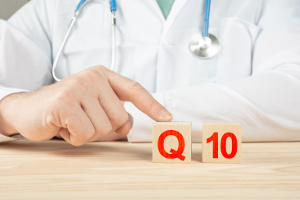 Q10 is a unique and wonderful coenzyme with a key function in energy turnover and a role as a powerful antioxidant. The body produces the lion’s share Q10 for its own needs but the endogenous synthesis of the compound decreases with age. Moreover, cholesterol-lowering statins and bisphosphonates used to treat osteoporosis disrupt the body’s Q10 synthesis. Over the past decades, numerous studies have shown that Q10 supplementation can slow down the ageing process. Q10 is also useful in connection with heart failure and several other chronic ailments that typically occur in old age. This is described in a review article that is published in Mechanisms of Ageing and Development. With Q10 supplements, it’s important to choose pharmaceutical-grade products with documented quality and bioavailability.
Q10 is a unique and wonderful coenzyme with a key function in energy turnover and a role as a powerful antioxidant. The body produces the lion’s share Q10 for its own needs but the endogenous synthesis of the compound decreases with age. Moreover, cholesterol-lowering statins and bisphosphonates used to treat osteoporosis disrupt the body’s Q10 synthesis. Over the past decades, numerous studies have shown that Q10 supplementation can slow down the ageing process. Q10 is also useful in connection with heart failure and several other chronic ailments that typically occur in old age. This is described in a review article that is published in Mechanisms of Ageing and Development. With Q10 supplements, it’s important to choose pharmaceutical-grade products with documented quality and bioavailability. An important element in skincare and natural anti-ageing is to protect our cells against free radicals, which are aggressive oxygen compounds that we humans are exposed to. The free radical burden increases tremendously as a result of stress, too little sleep, ageing processes, smoking, inflammation, poisoning, medical drugs, and sunburns. Our only source of protection against free radicals is the presence of different antioxidants such as vitamins A, C, and E, selenium, zinc, and Q10, but we also need essential fatty acids. Optimal skincare requires that we get adequate quantities of the different nutrients, which are also an important element in our energy turnover. But what is skin ageing really? And why can we not simply stop it with anti-wrinkle creams, Botox, and plastic surgery? Also, which antioxidants and essential fatty acids are difficult to get in the right quantities?
An important element in skincare and natural anti-ageing is to protect our cells against free radicals, which are aggressive oxygen compounds that we humans are exposed to. The free radical burden increases tremendously as a result of stress, too little sleep, ageing processes, smoking, inflammation, poisoning, medical drugs, and sunburns. Our only source of protection against free radicals is the presence of different antioxidants such as vitamins A, C, and E, selenium, zinc, and Q10, but we also need essential fatty acids. Optimal skincare requires that we get adequate quantities of the different nutrients, which are also an important element in our energy turnover. But what is skin ageing really? And why can we not simply stop it with anti-wrinkle creams, Botox, and plastic surgery? Also, which antioxidants and essential fatty acids are difficult to get in the right quantities? Many women experience sleep deprivation as one of the biggest problems of menopause. Not only does this condition cause fatigue, it also increases the risk of overweight, depression, impaired immune resistance, weak bones, atherosclerosis, and dementia. It is therefore a very good idea to solve any sleeping problem with the natural substance melatonin and a few other simple adjustments.
Many women experience sleep deprivation as one of the biggest problems of menopause. Not only does this condition cause fatigue, it also increases the risk of overweight, depression, impaired immune resistance, weak bones, atherosclerosis, and dementia. It is therefore a very good idea to solve any sleeping problem with the natural substance melatonin and a few other simple adjustments. Even though sun lovers have an increased risk of developing skin cancer, a recent Swedish study shows that those who sunbathe the most have a lower risk of dying of heart disease and other ailments. Therefore, be sure to get plenty of sun while you can so your body can produce generous amounts of vitamin D - but don't overdo it. Also, you may want to consider taking a vitamin D supplement during the winter period when your body's levels of the nutrient have been depleted, as this may help you live longer.
Even though sun lovers have an increased risk of developing skin cancer, a recent Swedish study shows that those who sunbathe the most have a lower risk of dying of heart disease and other ailments. Therefore, be sure to get plenty of sun while you can so your body can produce generous amounts of vitamin D - but don't overdo it. Also, you may want to consider taking a vitamin D supplement during the winter period when your body's levels of the nutrient have been depleted, as this may help you live longer. The diet’s content of vitamin C, vitamin B6, vitamin B12, folic acid, and other vitamins has a positive impact on our mental and physical health and well-being Lack of vitamins may even remedy depression and chronic pain, according to a Japanese study of seniors. The number of seniors worldwide is increasing with more and more people being affected by physical and mental disease. Therefore, scientists want to take a closer look at the diet and its influence on quality of life measured by different accounts.
The diet’s content of vitamin C, vitamin B6, vitamin B12, folic acid, and other vitamins has a positive impact on our mental and physical health and well-being Lack of vitamins may even remedy depression and chronic pain, according to a Japanese study of seniors. The number of seniors worldwide is increasing with more and more people being affected by physical and mental disease. Therefore, scientists want to take a closer look at the diet and its influence on quality of life measured by different accounts.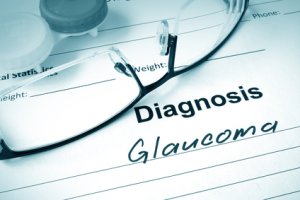 Mice that are genetically predisposed to glaucoma may avoid the eye disease if vitamin B3 is added to their drinking water. This was seen in a study that is published in the journal Science. The scientists behind the study say that vitamin B3 was surprisingly effective at eliminating the molecular alterations that normally occur with age-related glaucoma. They even see the vitamin as an inexpensive and potentially powerful tool for preventing this disease in the future. People should make sure to get plenty of vitamin B3, and it is also important to know that imbalanced diets, alcohol abuse, and the use of diuretics may easily result in a deficiency of the nutrient.
Mice that are genetically predisposed to glaucoma may avoid the eye disease if vitamin B3 is added to their drinking water. This was seen in a study that is published in the journal Science. The scientists behind the study say that vitamin B3 was surprisingly effective at eliminating the molecular alterations that normally occur with age-related glaucoma. They even see the vitamin as an inexpensive and potentially powerful tool for preventing this disease in the future. People should make sure to get plenty of vitamin B3, and it is also important to know that imbalanced diets, alcohol abuse, and the use of diuretics may easily result in a deficiency of the nutrient.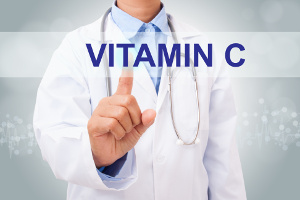 Telomeres are protective caps at the end of our DNA strands. You can compare them to the small plastic aglets that prevent shoelaces from unraveling. For each time a cell divides, the telomeres become shorter. The length of telomeres conveniently indicates our biological age. Diet plays a role and according to a large population study, vitamin C intake is linked to telomere length. The same is the case with Q10 and selenium, according to Swedish research. Vitamin C, Q10, and selenium serve as unique antioxidants that protect the telomeres and the cells against damage caused by oxidative stress.
Telomeres are protective caps at the end of our DNA strands. You can compare them to the small plastic aglets that prevent shoelaces from unraveling. For each time a cell divides, the telomeres become shorter. The length of telomeres conveniently indicates our biological age. Diet plays a role and according to a large population study, vitamin C intake is linked to telomere length. The same is the case with Q10 and selenium, according to Swedish research. Vitamin C, Q10, and selenium serve as unique antioxidants that protect the telomeres and the cells against damage caused by oxidative stress.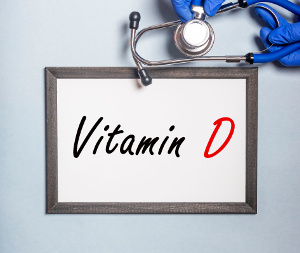 Vitamin D plays a major role in our health. The main focus, however, is on vitamin D’s importance for bones, while many health professionals are totally unaware of the nutrient’s other essential functions. According to a review article published in Nutrients, half the global population has low vitamin D levels in the blood, which increases the risk of cardiovascular disease, hypertension, cancer, type 2 diabetes, Alzheimer’s disease, respiratory infections like COVID-19, and early death. The authors also mention that vitamin D science is often inadequate or misleading because studies focus on supplementation rather than looking at blood levels of 25(OH)D. Consequently, trials are often made with far too small vitamin D doses or with too a short a trial period. In either case, blood levels of vitamin D fail to reach their optimum. What is more, levels of 25(OH)D in the blood should ideally be above 75 nmol/L in order to protect against cardiovascular disease, cancer, and early death. Because this threshold level is higher than the official threshold levels, the scientists recommend high-dosed vitamin D levels as a way to reach an optimal nutrient status.
Vitamin D plays a major role in our health. The main focus, however, is on vitamin D’s importance for bones, while many health professionals are totally unaware of the nutrient’s other essential functions. According to a review article published in Nutrients, half the global population has low vitamin D levels in the blood, which increases the risk of cardiovascular disease, hypertension, cancer, type 2 diabetes, Alzheimer’s disease, respiratory infections like COVID-19, and early death. The authors also mention that vitamin D science is often inadequate or misleading because studies focus on supplementation rather than looking at blood levels of 25(OH)D. Consequently, trials are often made with far too small vitamin D doses or with too a short a trial period. In either case, blood levels of vitamin D fail to reach their optimum. What is more, levels of 25(OH)D in the blood should ideally be above 75 nmol/L in order to protect against cardiovascular disease, cancer, and early death. Because this threshold level is higher than the official threshold levels, the scientists recommend high-dosed vitamin D levels as a way to reach an optimal nutrient status.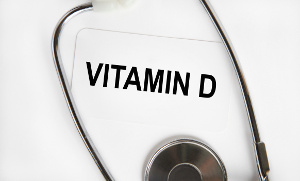
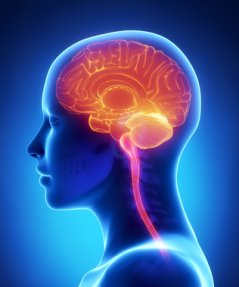 Vitamin C is extremely important for the brain’s blood vessels, nerve cells, neurotransmitters, and connective tissue. An estimated 10 percent of the adult population is vitamin C deficient without specific symptoms. According to a scientific article in the Danish journal Aktuel Videnskab, vitamin C deficiency during pregnancy may harm brain development in the fetus.
Vitamin C is extremely important for the brain’s blood vessels, nerve cells, neurotransmitters, and connective tissue. An estimated 10 percent of the adult population is vitamin C deficient without specific symptoms. According to a scientific article in the Danish journal Aktuel Videnskab, vitamin C deficiency during pregnancy may harm brain development in the fetus.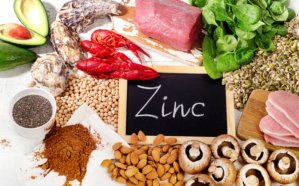 Our ability to absorb zinc is reduced with age, and many older people lack zinc, even though there is plenty of zinc in the diet they eat. The trace element is involved in over 1,000 enzyme processes and is also an important antioxidant that protects our cells. Even minor zinc deficiencies can speed up ageing processes and contribute to skin and hair problems, infections such as bladder infections, chronic inflammation, elevated blood pressure, cancer, and other diseases. People with unhealthy diets, vegetarians, vegans, and older people are at particularly vulnerable. Certain types of medicine that many seniors take can also increase the risk of a zinc deficiency.
Our ability to absorb zinc is reduced with age, and many older people lack zinc, even though there is plenty of zinc in the diet they eat. The trace element is involved in over 1,000 enzyme processes and is also an important antioxidant that protects our cells. Even minor zinc deficiencies can speed up ageing processes and contribute to skin and hair problems, infections such as bladder infections, chronic inflammation, elevated blood pressure, cancer, and other diseases. People with unhealthy diets, vegetarians, vegans, and older people are at particularly vulnerable. Certain types of medicine that many seniors take can also increase the risk of a zinc deficiency. "After about one week of taking the Q10 supplement I could feel a huge difference," says 23-year old Alan Piccini, who has been suffering from extreme fatigue and muscle aches ever since he was a child.
"After about one week of taking the Q10 supplement I could feel a huge difference," says 23-year old Alan Piccini, who has been suffering from extreme fatigue and muscle aches ever since he was a child. “Taking capsules with co-enzyme Q10 has freed me of the severe side effects of my cholesterol lowering medicine,” Mrs Franken explains.
“Taking capsules with co-enzyme Q10 has freed me of the severe side effects of my cholesterol lowering medicine,” Mrs Franken explains.